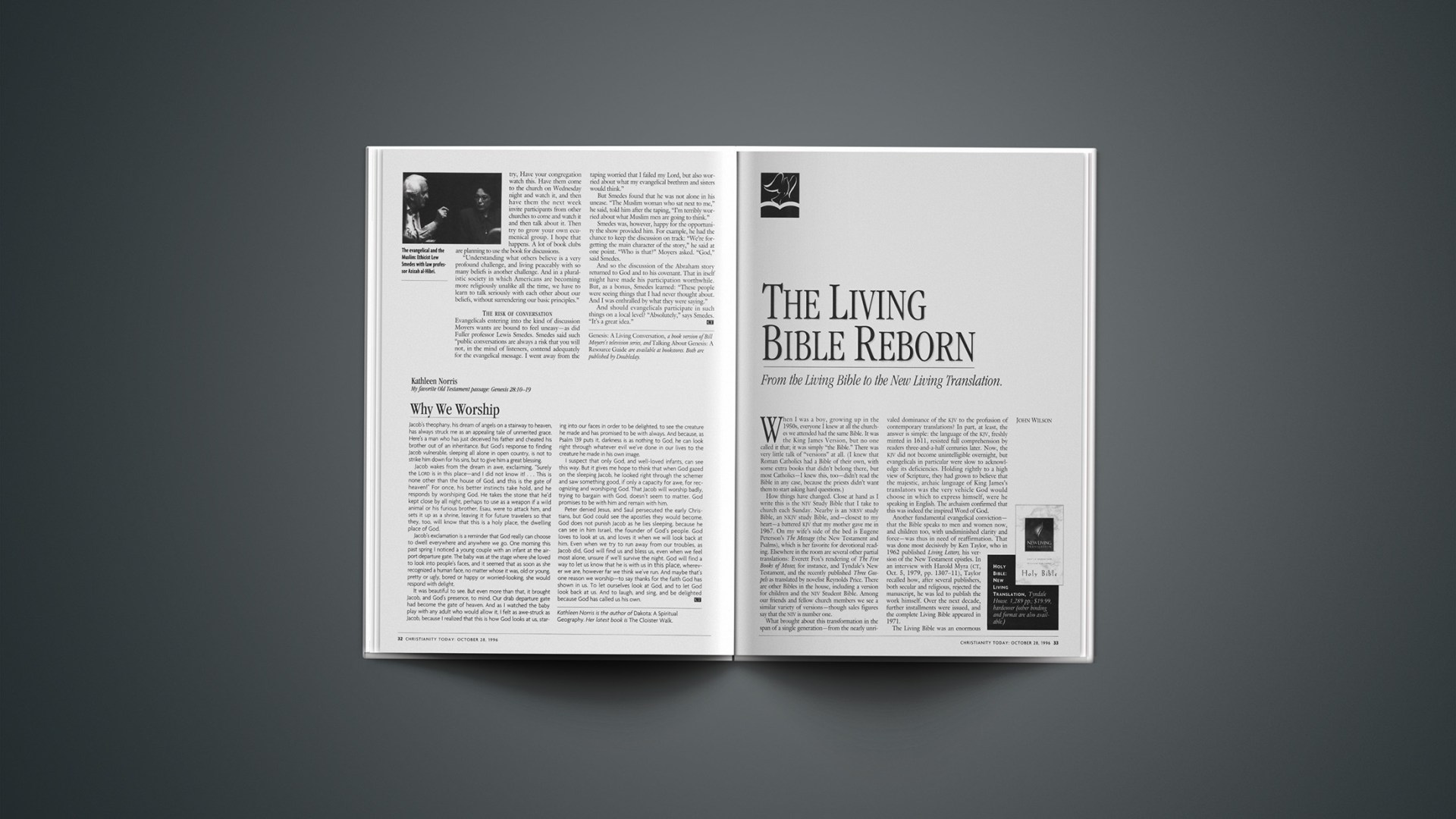Jacob's theophany, his dream of angels on a stairway to heaven, has always struck me as an appealing tale of unmerited grace. Here's a man who has just deceived his father and cheated his brother out of an inheritance. But God's response to finding Jacob vulnerable, sleeping all alone in open country, is not to strike him down for his sins, but to give him a great blessing.
Jacob wakes from the dream in awe, exclaiming, "Surely the lord is in this place-and I did not know it! … This is none other than the house of God, and this is the gate of heaven!" For once, his better instincts take hold, and he responds by worshiping God. He takes the stone that he'd kept close by all night, perhaps to use as a weapon if a wild animal or his furious brother, Esau, were to attack him, and sets it up as a shrine, leaving it for future travelers so that they, too, will know that this is a holy place, the dwelling place of God.
Jacob's exclamation is a reminder that God really can choose to dwell everywhere and anywhere we go. One morning this past spring I noticed a young couple with an infant at the airport departure gate. The baby was at the stage where she loved to look into people's faces, and it seemed that as soon as she recognized a human face, no matter whose it was, old or young, pretty or ugly, bored or happy or worried-looking, she would respond with delight.
It was beautiful to see. But even more than that, it brought Jacob, and God's presence, to mind. Our drab departure gate had become the gate of heaven. And as I watched the baby play with any adult who would allow it, I felt as awe-struck as Jacob, because I realized that this is how God looks at us, staring into our faces in order to be delighted, to see the creature he made and has promised to be with always. And because, as Psalm 139 puts it, darkness is as nothing to God, he can look right through whatever evil we've done in our lives to the creature he made in his own image.
I suspect that only God, and well-loved infants, can see this way. But it gives me hope to think that when God gazed on the sleeping Jacob, he looked right through the schemer and saw something good, if only a capacity for awe, for recognizing and worshiping God. That Jacob will worship badly, trying to bargain with God, doesn't seem to matter. God promises to be with him and remain with him.
Peter denied Jesus, and Saul persecuted the early Christians, but God could see the apostles they would become.
God does not punish Jacob as he lies sleeping, because he can see in him Israel, the founder of God's people. God loves to look at us, and loves it when we will look back at him. Even when we try to run away from our troubles, as
Jacob did, God will find us and bless us, even when we feel most alone, unsure if we'll survive the night. God will find a way to let us know that he is with us in this place, wherever we are, however far we think we've run. And maybe that's one reason we worship-to say thanks for the faith God has shown in us. To let ourselves look at God, and to let God look back at us. And to laugh, and sing, and be delighted because God has called us his own.
Kathleen Norris is the author of Dakota: A Spiritual Geography. Her latest book is The Cloister Walk.










